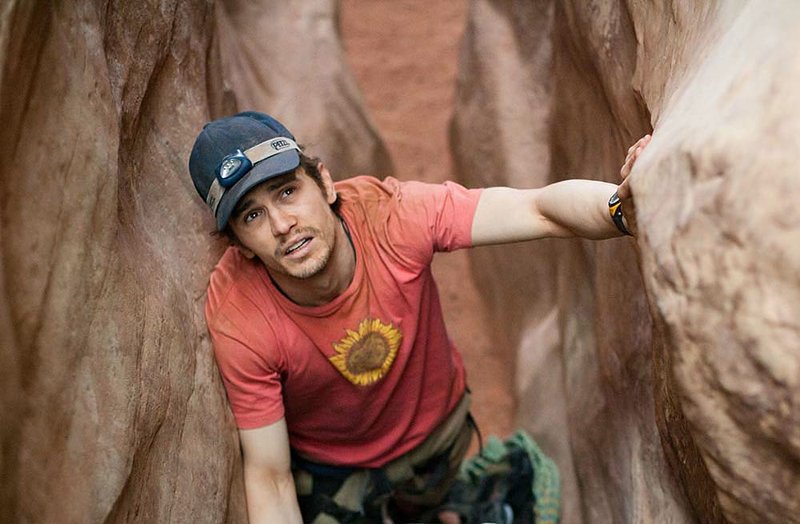LITTLE ROCK — In 127 Hours, director Danny Boyle relates the genuinely astounding true story of Aron Ralston, a 27-year-old mountaineer who - in 2003 - found himself trapped in a slot canyon in Utah, his right arm pinned under a huge boulder.
While you probably know what happened to Ralston, for the sake of those who have (figuratively) been living under a rock let’s avoid a direct spoiler. Suffice it to say Ralston survived to write the memoir that served as the tinder for Boyle’s cinematic conflagration, and that it’s unlikely he would have gotten around to the writing had he followed the example of, say, Christopher McCandless, the protagonist of Into the Wild, and starved to death in the wilderness.
While I haven’t read Ralston’s 2004 memoir, I went into this film understanding that he had done something remarkable while wondering if there was enough material to fashion a compelling film. In fact, Ralston’s story seemed almost anti-cinematic - it’s a movie about a man trapped alone in a confined place. And the ultimate moment of truth is difficult to contemplate and harder to watch (though not as tough as some had led me to believe).
But Boyle is nothing if not an inventive movie maker and mightn’t the pain and claustrophobia of Ralston’s situation argue for some sort of psychedelic treatment? I mean, doesn’t anyone remember Dalton Trumbo’s Johnny Got His Gun (both the novel Trumbo wrote and the movie he directed)?
It’s hardly any surprise that Boyle brings us fantasy, memory and cinematography (great, over-saturated earth tones), but the film’s heart is an unsentimental and clear-eyed performance by James Franco.
As wrenching as the movie gets in its most harrowing 10minutes, it ultimately feels like a well-made ode to joy - as nightmarish as Ralston’s predicament must have been, Boyle’s movie feels misleadingly bright and slight, as much an opportunity for a clever artist to show off his tricks as a sincere hymn to the indomitable spirit of the human animal.
Frankly none of the psychological or philosophical insights offered by the film are profound - 127 Hours doesn’t tell us anything that we shouldn’t already know. But it is immaculate in its technical aspects, not just in the way the camera hunts down interesting images but in its pitch perfect casting and (especially) in its sound design. This is the sort of movie you admire more for its virtuosity than the story it relates - it’s like listening to Thelonious Monk run scales. It’s impressive but not fulfilling.
MovieStyle, Pages 31 on 01/28/2011
